Got Gout? Here’s What To Eat and Avoid
October 13 2017It might have a reputation as the “disease of kings”, but gout affects around 70,000 Australians a year. A healthy diet can manage symptoms and reduce your risk, so here are the foods to load up on and those to avoid.
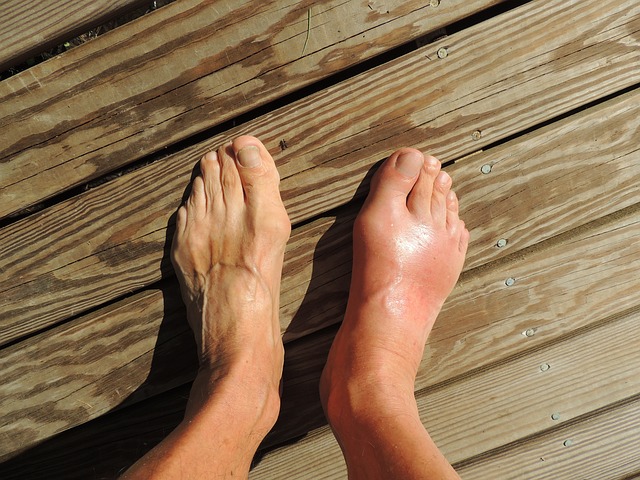
Gout is an arthritic condition caused by swelling of the joints that often strikes out of the blue and can be extremely painful.
You get gout when your metabolism of purine – a chemical component of DNA which is made in the body and found in some food and drinks – gets out of kilter.
Purine is broken down in the liver, producing uric acid as a byproduct. Uric acid enters the bloodstream, travels to the kidneys and is excreted in urine. If uric acid can’t be cleared, blood uric acid levels rise. This can culminate in sudden and excruciating joint pain, called an acute gout attack.
However, the good news is that this is the only form of arthritis where there is clear medical evidence showing that a change in diet can result in significant benefits.
So what should you eat and avoid if you have gout? Check out the list below:
Foods to eat
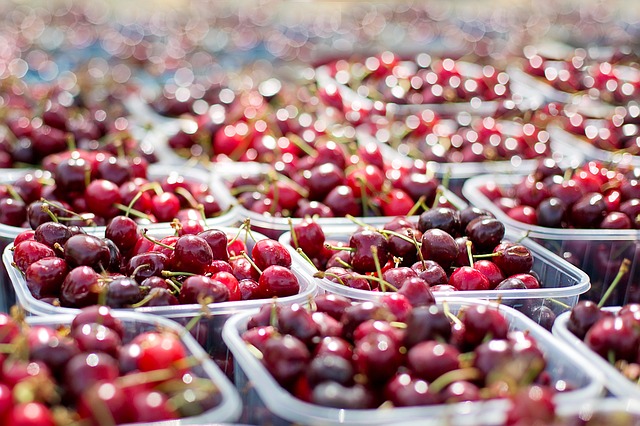
Cherries
Bioactive components in cherries lower uric acid production in the liver and improve excretion via the kidneys. They also have anti-inflammatory properties.
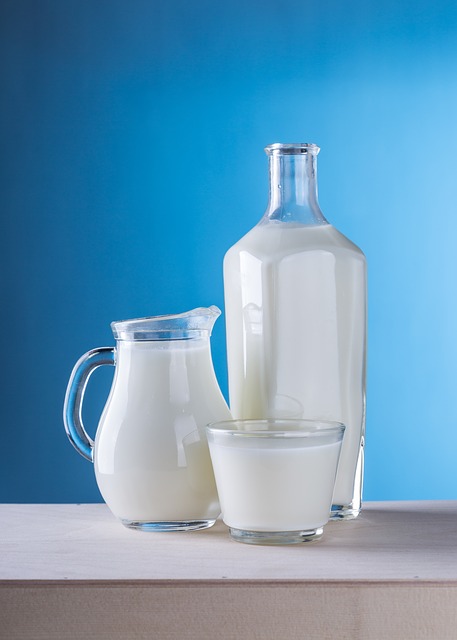
Milk
Milk promotes uric acid excretion. Having two or more daily serves of dairy, especially from reduced fat and skimmed milk, confers a 42-48 per cent lower risk of gout compared to less than one serve.
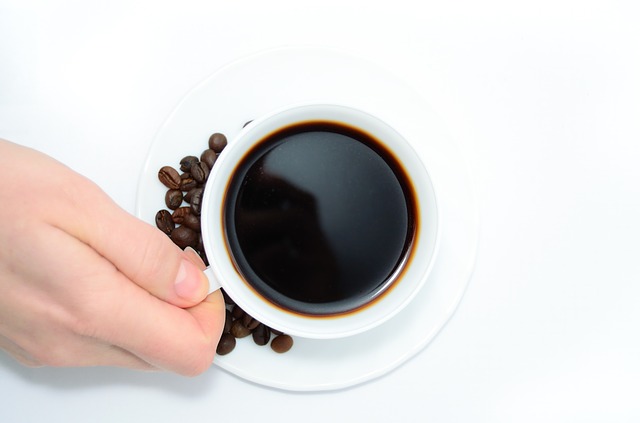
Coffee
A number of studies have shown that coffee is associated with a lower risk of gout. Coffee is a diuretic and therefore increases urine production. Coffee’s chlorogenic acid promotes uric acid excretion, while the chemical xanthines lower uric acid production.
Interestingly, even drinking decaffeinated coffee conferred a lower risk of gout.
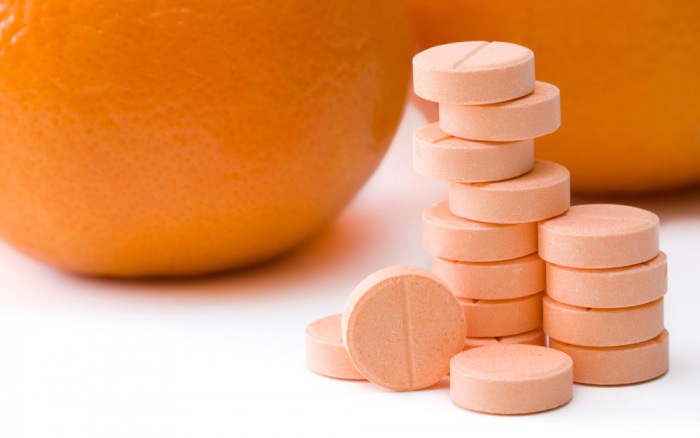
Vitamin C
A large review of 13 studies found taking vitamin C supplements (about 500 mg a day for around a month) led to a small reduction in blood uric acid of 0.02 mmol/L.
But one word of caution before you start popping vitamin C: high intakes increase the risk of kidney stones.
Things to cut down on
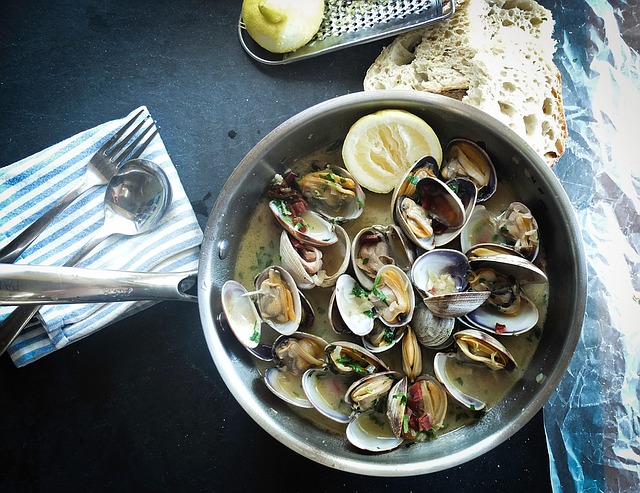
Meat and seafood
High intakes of red meat (including liver, kidneys and other offal) and seafood (shellfish, scallops, mussels, herring, mackerel, sardines and anchovies) are associated with a greater risk of gout because of their high purine content and impact on uric acid production.
Foods that contain yeast, such as Vegemite and Marmite, are also high in purine.
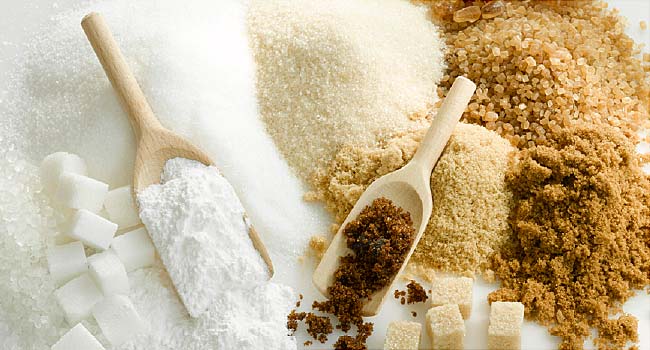
Sugars
Fructose is a “simple sugar” found in honey, fruit, some vegetables, and sweeteners. Fructose increases purine metabolism, raising blood uric acid levels.
Avoid sweeteners high in fructose such as honey, brown sugar, high-fructose corn syrup, golden syrup and palm sugar. Check your tolerance for fruits, vegetables and other foods high in fructose.
Uric acid levels tend to be higher in people who regularly consume sugar-sweetened drinks. Those drinking one to two sugar-sweetened soft drinks a day are almost twice as likely to have gout as those who drink only one a month.
When it comes to whole fruit, results are not clear. While one study found a higher risk of gout with higher fruit intakes, another found a lower risk. The opposing results are partly confounded by the variation in fructose content of different fruits.
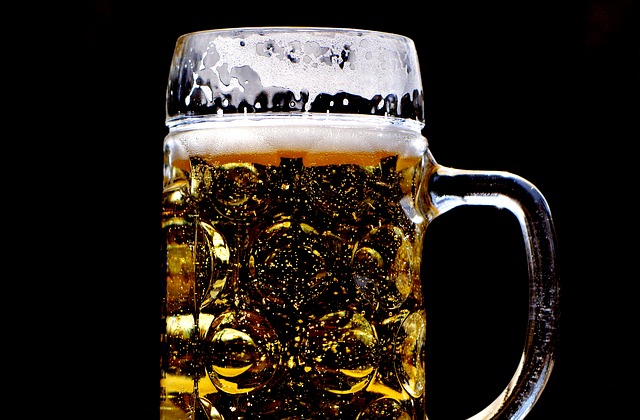
Alcohol
The effect of specific alcoholic beverages on blood uric acid levels varies. Beer is high in purine and increases uric acid more than spirits, while moderate wine intake appears neutral.
Non-drinkers have been shown to have lower uric acid levels than those who drink beer or spirits. The more they drank, the higher their uric acid levels.
In a meta-analysis of 17 studies involving 42,000 adults, the relative risk of gout for those with the highest alcohol intakes was almost double compared to non-drinkers or occasional drinkers.
Ten tips for beating gout
If you have gout, use these nutrition tips to lower your risk:
- See your GP to check or monitor gout risk factors. Contact Myers Street Family Medical Practice on 03 5229 5192 or The Cottage Medical Clinic on 03 5241 6129 to schedule a consultation with one of our medical professionals.
- Drink up to four cups of regular or decaffeinated coffee a day
- Have two to three serves of reduced-fat or skim dairy foods daily (for example, milk on cereal, milky coffee, custard or yoghurt)
- Eat cherries regularly (fresh or frozen). Add to breakfast cereal and snacks, or mix with yoghurt
- Avoid fasting and feasting. Both increase purine turnover and blood uric acid
- Manage your weight by trying to prevent weight gain. If you are overweight, try to drop a few kilograms
- Avoid foods high in purines(offal meats, sardines, anchovies, yeast spreads, beer) and rein in the portion size of foods with a medium purine content
- Cut out soft drinks, sports drinks, and fruit juice. Aim for two litres of water daily (or enough so your urine is the colour of straw)
- Limit alcohol, especially beer and spirits
- Manage your fructose by avoiding honey, brown sugar and corn syrup solids (check food labels). Eat fruit and vegetables with a low to moderate fructose content. Avoid those that are very high in fructose, except for cherries.
Sourced from The Conversation.
